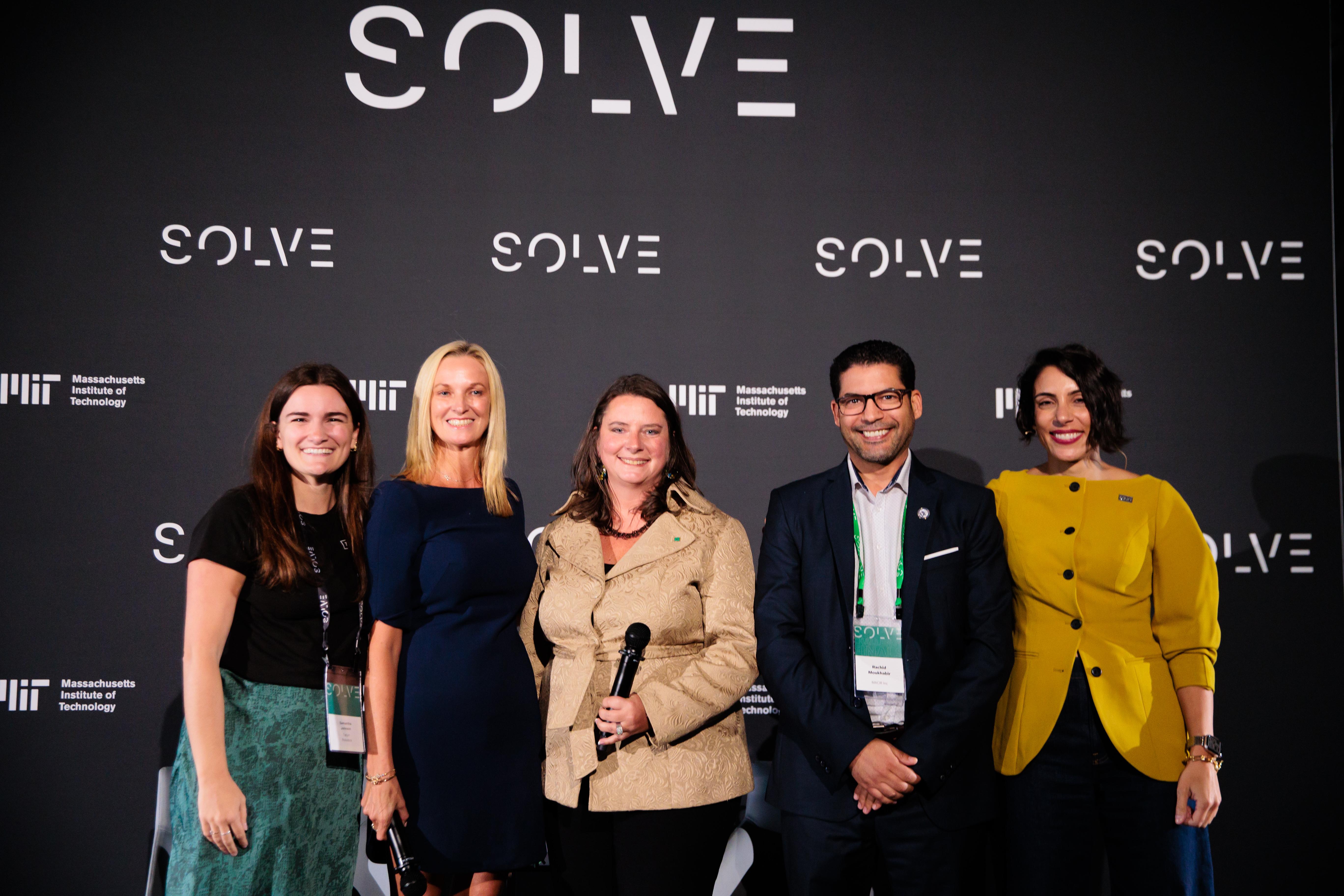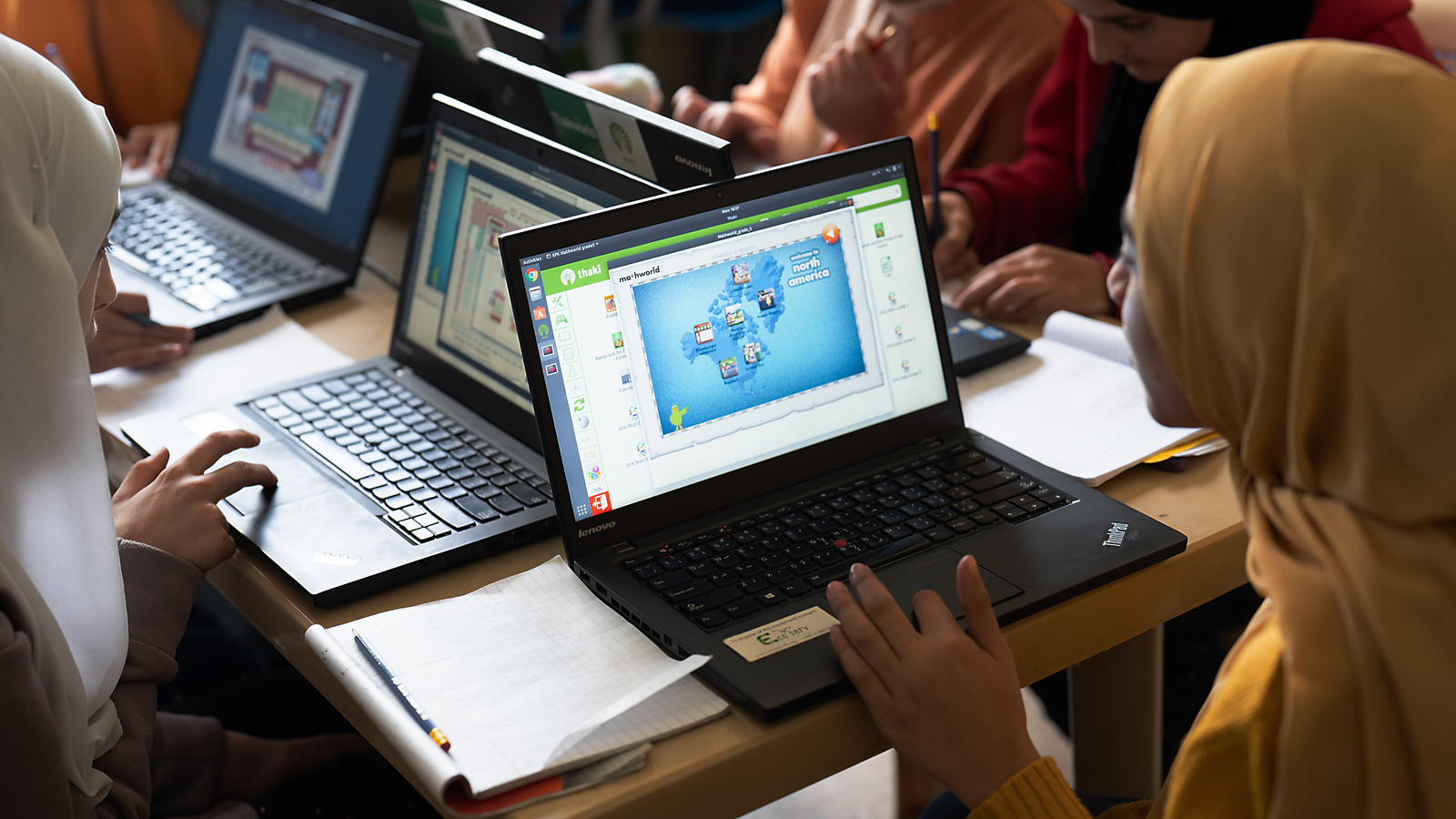
This Year’s Co-Chairs for Solve’s Four Challenges: Jim Kim, Ngozi Okonjo-Iweala, & Peter Sands
Each year, Solve issues four Challenges across its pillars—Economic Prosperity, Health, Learning, and Sustainability—to find the most promising Solver class to drive transformational change. Last year, Solve received nearly 1,000 solutions from over 100 countries.
On March 1, we launched four new Challenges: (1) Work of the Future, (2) Frontlines of Health, (3) Coastal Communities, and (4) Teachers & Educators. These are open until July 1 for anyone, anywhere to apply – submit your solution here!
For each Challenge, we put together a group of 20 to 25 esteemed leaders from the private, public, nonprofit, and academic sectors—the Challenge Leadership Groups. These Groups help advise on and promote the Challenges, and they also review and select the best solutions to invite to Solve Challenge Finals on September 23, 2018, during UN General Assembly Week.
At Solve Challenge Finals, finalists will pitch their solutions to the Challenge Leadership Groups and a live audience, and the best eight to 10 Solver teams per Challenge will be selected to form the new Solver class. The Solver class joins Solve’s community, gaining access to potential grant funding and leaders from the tech industry, business, philanthropy, government, and civil society who seek opportunities to implement innovative, scalable ideas.
This year, we’re honored to have several inspirational leaders to co-chair the Challenge Leadership Groups.
Frontlines of Health Co-Chairs: Dr. Ngozi Okonjo-Iweala and Peter Sands
At least half of the world’s population does not have regular access to essential health services. While dramatic progress has been made, including the reduction of infant mortality rates worldwide, more than 50 million people a year still die of preventable and treatable conditions. In the Frontlines of Health Challenge, we ask, how can communities invest in frontline health workers and services to improve their access to effective and affordable care?
The Frontlines of Health Challenge Leadership Group brings together implementers of last-mile health programs, representatives of public-private partnerships focused on improving frontline healthcare, researchers, and healthcare providers. Our Challenge Co-Chairs are Peter Sands, Executive Director of the Global Fund to Fight AIDS and MIT alumna Dr. Ngozi Okonjo-Iweala, Board Chair of Gavi the Vaccine Alliance.
Jim Kim to Co-Chair the Work of the Future Challenge
Automation, artificial intelligence, and the cloud all dramatically change the nature of work. These transformations will continue to displace many workers in their wakes, but they will also create other jobs and entire new industries we have yet to imagine. In the Work of the Future Challenge, we’ll enable those most affected by the technology-driven transformations of work to create productive and prosperous livelihoods for themselves.
The Work of the Future Challenge Leadership Group brings together leaders from large industry including manufacturing, labor movements, government representatives, and think tanks. This year, our Challenge Co-Chair is Jim Yong Kim, MD, PhD, President of The World Bank Group.
Teachers & Educators Challenge
Education remains the most important investment a community can make both to bolster the growth of its economy and to reduce inequality. Yet, 61 million children don’t have access to primary education, 142 million teenagers aren’t enrolled in secondary school, and less than 10 percent of the world’s population hold college degrees. Through the Teachers & Educators Challenge, we seek ways to provide accessible, personalized, and creative learning experiences for all.
Members of the Teachers & Educators Challenge Leadership Group will bring together leaders from traditional and less traditional educational providers, international organizations, government, and academia. Challenge Leadership Group Members include: H.E. Dr. Omar Razzaz, Minister of Education, The Hashemite Kingdom of Jordan and Carolyn Miles, CEO, Save the Children.
Coastal Communities Challenge
Over 30 percent of humanity lives near coasts, ranging from massive cities to key ports and naval bases to small islands. The effects of climate change – including sea level rise, stronger storms, ocean warming and acidification – cause increasing negative impacts on these communities’ lives and livelihoods. Through the Coastal Communities Challenge, we’ll help communities mitigate and adapt to climate change while developing and prospering.
The Coastal Communities Challenge Leadership Group will bring together leaders from conservation organizations, the insurance industry, regional multilaterals, as well as urban resilience and climate risk management groups.
Thanks to the great experts and leaders from our Challenge Leadership Groups, we hope to find the most promising Solver solutions to impact the world.
Feeling inspired? Get involved with Solve:
- Have a great solution to our Challenges? Apply here by July 1.
- Want to support our Solver teams with funding, mentorship, technical expertise, and other resources? Become a member and join us for our events, including Solve at MIT on May 16-18, 2018 on MIT’s campus.
- Help your community create, refine, and submit impactful solutions to our four Challenges through a facilitated design workshop: host a Solveathon.
Tags:
- Learning
- Economic Prosperity
- Membership
- Health
- Sustainability
Related articles
-
Workforce Development for the Future: A Q&A with Michelle Hecht, Executive Vice President, Head of Corporate Affairs, Citizens

-
“Education is the one thing you can take with you.” A Q&A with Rudayna Abdo, Founder and CEO, Thaki

-
A LEAP in evidence-based innovation for education
How to address the need for evidence-based innovation in education by empowering researchers, social entrepreneurs and education organizations to work together.